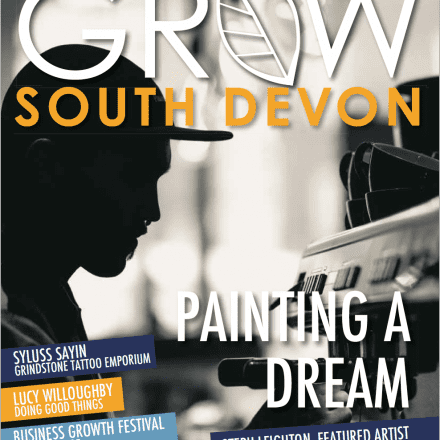Brexit; Is The Draft “In The National Interest”?
Grow Talk by Sofy Robertson
The cabinet has backed a draft withdrawal agreement between the UK and the EU.
Speaking outside Downing Street, Theresa May says she believes with her “head and her heart” that it is in the best interests of the UK amidst audible boos and heckling from the unseen crowd.
The prime minister spoke after a five-hour cabinet meeting that she said was a “long, detailed and impassioned debate”.
May repeated the phrase “in the national interest” with regard to the Brexit plans being put forth to parliament today.
Although May appears positive about the outcome of the meeting in the video, which can be watched on the BBC website, the audible booing and heckling speaks to a nation that is divided on the issue. It seems the cabinet, too, were divided as BBC political editor Laura Kuenssberg revealed that the cabinet decision was “certainly not unanimous” with nine ministers speaking out against the deal. Leading Brexiteer, Jacob Rees-Mogg, even went so far as to describe it as a “rotten deal”.
The 585-page draft agreement has now been published alongside a shorter statement setting out what the UK and EU’s future relations will look like.
The Draft Agreement
The withdrawal agreement covers aptly named “divorce” issues. Within it are commitments to protect the rights of EU nationals in the UK and Britons living in the EU.
There is also a planned 21-month transition period after the UK leaves the EU in March 2019. A “financial settlement” is planned from the UK, thought to be between £35bn and £39bn.
One part of the draft that has caused a lot of contention is the “backstop” which aims to guarantee that physical checks will not be reintroduced at the border with the Irish Republic, in the event this is not settled by a UK-EU trade deal.
What are people saying about the draft?
Labour leader Jeremy Corbyn disagreed with May, saying that the agreement was not in the national interest because “it doesn’t meet the needs of all parts of Britain”. Labour will reveal during this morning’s Commons statement whether it will vote against the agreement. In a live statement from the House, Corbyn challenged May, saying:
“This is not the deal that the country was promised, and Parliament cannot, and I believe will not, accept a false choice between a bad deal and no deal.”
Some Conservative MPs are angry that this agreement could mean the UK is tied to the EU’s rules for years to come.
Rory Stewart, Prisons Minister for the UK, spoke to the nation on BBC’s Victoria Derbyshire programme, saying that May has made “a huge amount of progress” in negotiations. He believes the draft to be “a good deal for the country”.
A senior conservative MP has said there could be a move to a vote of no-confidence in May, perhaps as soon as today. Newton Abbott’s MP, Anne-Marie Morris, has already written a letter calling for May to resign. She believes that the Chairman of the committee that represents Conservative backbenchers now has the forty-eight letters required for this to happen. Morris, a committed Brexiteer, feels that May is not the prime minister to take the UK through Brexit. She said:
“In the same way that Churchill was great for war but not for peace, this is not Theresa May’s time”. (Radio Exe)
Labour MP Chuka Umunna says the problem lies within Brexit itself, rather than the draft agreement. The pro-Remain MP said:
“So, although of course you’d expect me as a Labour MP to say it’s an incompetent government, an incompetent prime minister, and it is, even if you had the most competent government, the most competent prime minister, they would not be able to deliver Brexit in the terms that it was sold.
“The problem here is Brexit itself. You cannot get all of the things that we were sold.” (BBC)
Scotland’s First Minister, Nicola Sturgeon, said:
“This proposed deal would be a bad one for Scotland, taking us out of a single market eight times the size of the UK market alone and posing a huge threat to jobs, investment and living standards.”
Sturgeon later tweeted after a phone call with May:
“[May] tried to tell me Scotland’s ‘distinctive’ interests had been protected. I pointed out that there isn’t a single mention of Scotland in the agreement, that it disregards our interests, and puts Scotland at a serious competitive disadvantage.”
Abandon Ship
Following the approval of the draft proposal by a majority vote in May’s cabinet, a number of resignations have been officially recorded.
Brexit secretary Dominic Raab resigned just before 9:00am this morning. Work and pensions secretary Esther McVey followed an hour later.
Junior Northern Ireland minister Shailesh Vara, junior Brexit minister Suella Braverman, and parliamentary private secretary Anne-Marie Trevelyan have also stepped down.
What happens now?
Despite winning the majority of support from her cabinet, May will face a battle to get the completed deal through parliament.
The EU will now convene a special summit to agree the withdrawal plans, possibly later this month.
After that, the government faces a final crunch vote in Parliament where MPs will be asked to approve the plans.
A country divided
Following Live News streams and Twitter feeds, the reactions from those within parliament and without are divided between calling for May’s resignation and supporting her for the progress that she has made.
We have reached a particularly unsettling point within UK history. Whether or not Brexit was ‘mis-sold’ to the people through propaganda, social media advertising breaches and tabloid hype, we have reached this critical crossroads. Uncertainty and division are at the forefront of our nation due to the fear of the unknown.
It is of little comfort that those within parliament, those with so much control over our nation, are as divided as the people they represent. Together, we all want what is best for our country. The way forward cannot be with continued division.
In 2017, a Brexit referendum seemed out of the question, with only the Liberal Democrat Party in support of it. Now, there is an increasing likelihood that Britain will be given a vote on whether or not to accept the Brexit deal proposed.
In a matter of hours, we will know whether Parliament has chosen to push ahead with May’s proposal. Until then, we can only educate ourselves as best as possible regarding the implications of the deal proposed so that in the case of a public vote, we can be armed with the information necessary to make our choice.
Photo by Jordhan Madec on Unsplash






